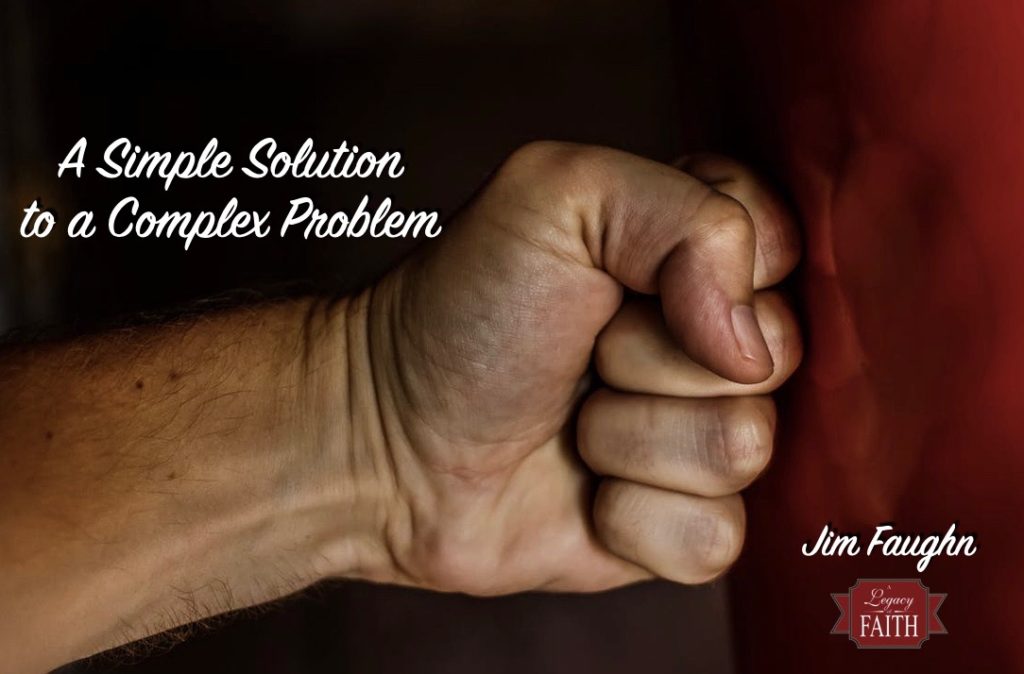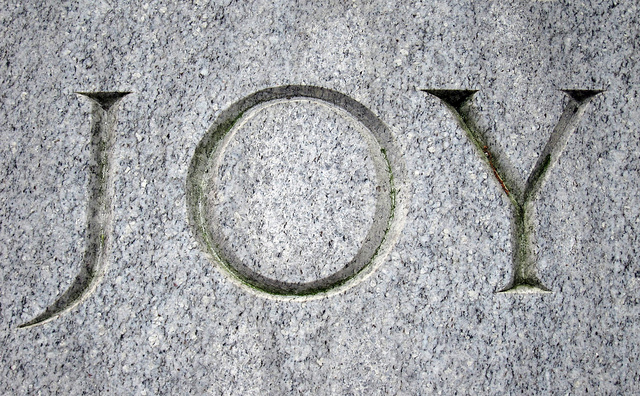A Simple Solution to a Complex Problem
It has been about two months since I sat in a chapel session during the annual lectureship at Freed-Hardeman University and listened to a presentation. This particular presentation is, by no means, the first or only “chapel talk” I’ve heard. It was not even the only one I heard that week. It may be the first one, however, that I’ve thought about for as long as I have or as deeply as I have this one.
Since I heard the presentation, I’ve also read some of the “background information” about what I heard. Both the presentation and the information I’ve learned since then has caused me to do a lot of thinking, reflecting, and praying.
The presentation I heard was delivered by a man who is a principal in a middle school in a small university town in Tennessee. The information I read subsequent to his “chapel talk” was also about him and the events that led to that presentation.
As he related those events to those of us who were listening, he said that he had seen similar events on television, had read about them in various news outlets, etc. Those other events had taken place in other places. Those other places had been in cities much larger than the community in which he lives. As I remember it, he said that he never dreamed that something like what he had seen, read about, etc. could happen in “his town” of a little over six thousand people.
Apparently, the incident about which he was talking didn’t happen in a large enough place to grab the attention of the various news media. If it did, I had never heard about it until he was talking about it in that chapel presentation. You could tell by what he said, though, that the incident itself and subsequent events had made a major impact on him.
What I was listening to that day was a Black man talking to a racially diverse group of university students, faculty and staff at that university, and guests who were there for the lectureship. The only reason for me mentioning his race is that he did, and he did it in a way that is vital to understanding his message.
What I was listening to was a Black middle school principal talking about a White female police officer shooting and killing a young Black man. Again, this did not happen in some large metropolitan area, but in a small town. The circumstances surrounding the shooting itself are not what I remember the most about his presentation. In fact, as I remember it, the speaker may not have even mentioned how this took place. The focus was on the fact that it did take place.
Actually, the real focus of what I heard that day dealt, in part, with the internal conflict with which he was dealing. To very loosely paraphrase him, there was a part of him that wanted to show support for the officer. The reason for that is that he knew her. She had served as a resource officer in his school and her children had been or were students there. He’d spent time with her and had gotten to know her. According to him, he knew her to be a good person.
As the principal continued to talk, though, he mentioned people in the community who might accuse him of “selling out” if he showed any support for her. As I listened, I truly felt for him as he opened up about his struggles. None of us like to be pulled by different and conflicting pressures.
I’ve been doing a lot of thinking about all of this. I don’t know of anything I can do to help either the principal, the police officer, her family, the family of one who lost his life, or anybody else that was affected by all of this.
I do have an idea, though, about something that all of us can do to minimize the tensions we all deal with. I am not only talking about racial tensions. The tensions with which all of us deal come in all kinds of shapes, sizes, colors, etc. Some who may read these words may not need to even leave their houses to have to deal with tensions in relationships.
So – what is my idea? Actually, I’ve already hinted at it earlier. It may sound strange because, while it was a source of tension for the school principal, it may, in fact, be part of a solution.
Did you notice that I wrote that the principal knew the police officer, that he had spent time with her, and that he knows what kind of person she is? Do you see a solution to a lot of tension there?
What if all of us decreased the amount of time we spend with people who think, look, and act like us? What if we made a real effort to get to know those with whom we may not have all of those things in common? What if we replaced “man caves” with front porches? What if we turn off and/or put down the sources of “information” we use to spoon feed us information that serve to help to cement our own opinions, prejudices, preferences, etc.? What if we quit putting labels on people and would see each individual as a precious soul?
I don’t know very many of the details of what took place on a fateful day in a small town in Tennessee. I don’t really need or want to know. What I do know is that people are still hurting because of the events of that day. I’m just wondering if all of that could have been avoided and if any possible future events could be avoided if people would take the time to really get to know one another.
The following quote has been attributed to Abraham Lincoln:
I think that would be a real solution to a lot of the problems in our world today.
Receive All Of Our Posts Via Email For Free
AUTHOR: Jim Faughn



